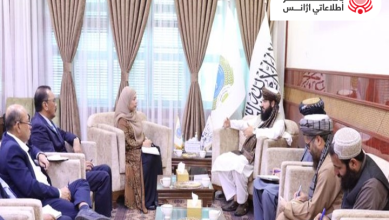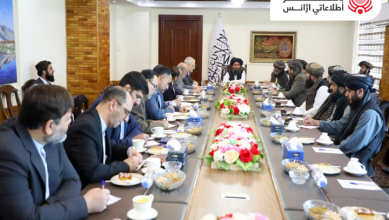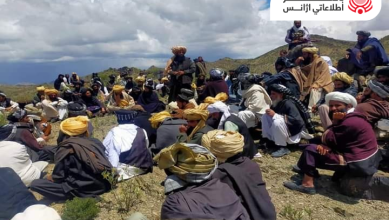
Kabul (BNA) In an Op-Ed published in the Washington Post the other day, Shaharzad Akbar, the chairwoman of the Afghanistan Independent Human Rights Commission (AIHRC), said that one year ago – February 28 – Afghans were buoyed by the signing of the US-Taliban agreement in Doha, which they hoped would bring peace, adding that instead, today, a year later, targeted killings have spiked leaving thousands of civil society activists, government officials, journalists and even doctors fearing for their lives.
She said that that “every night, I lie awake wondering who will be next. I think of a colleague whose teenage son checks his car every morning for magnetic bombs. A husband saying goodbye to his wife as she leaves for work, wondering if today will be the day she is killed on her way to the office.”
She said that a year after the deal was signed, instead of ushering in peace “one of the most tangible changes has been an increase in targeted killings, mostly unclaimed, that have created an environment of terror and fear.
“There were nearly three times the number of such attacks in 2020 compared with 2019; the casualties include the deaths of 11 human rights defenders and media workers in the past five months,” she wrote.
Akbar pointed out that some of Afghanistan’s most important gains, its activists, community leaders and scholars, are being silenced at a time when, after the US-Taliban deal, Afghans had hoped for a reduction in violence and for inclusive intra-Afghan negotiations.
“While the Taliban denies involvement in most targeted attacks, it benefits from the environment of fear and hopelessness around the peace process and the lack of critical voices demanding an inclusive peace. “This reign of terror for Afghan civilians must end in order for a real peace process to begin,” Akbar wrote.
She also pointed out that as the United States reviews its Afghanistan policy, it still has leverage — including the existing UN sanctions on the Taliban, the group’s desire for international recognition and legitimacy, and the presence of international forces in Afghanistan — to help stop these attacks and encourage a ceasefire and an inclusive peace process.
She stated that her AIHRC colleagues know what it is to feel terror as the organization has lost three of its staff members in the past 18 months. Akbar pointed out that these high levels of violence are forcing families to flee the country.
Akbar stated that while US President Joe Biden’s team has signaled that it will withdraw its last troops as per the agreement with the Taliban, if the group reduces violence. He said: “This is welcome but not enough. Even with overall violence levels down, targeted killings are silencing the voices needed to build pressure for peace.”
“The United States does not want Afghanistan to collapse into a catastrophic civil war as soon as it withdraws, after 20 years of assistance. But the narrow focus of the US-Taliban deal ignored the wider needs of the peace process, including the importance of civic space and the protection of civilians. This approach should be urgently reconsidered in Biden’s review,” she said.
She also stated that public participation can best be guaranteed through a ceasefire and that the US and its allies should utilize their leverage with both sides and the region to continue to push for an interim and immediate ceasefire that will create an opportunity for national engagement.
“An immediate end to targeted killings, a ceasefire and the restoration of civic space will allow for broader inclusion in the talks, reviving hope and confidence in the process,” she said.
Akbar stated that the US can encourage the Taliban and the Afghan government to create this enabling environment for peace. Afghans could then force hope back onto the table. “We will not find peace in silence and fear,” Akbar stated.




